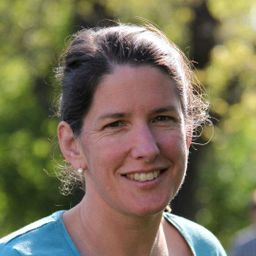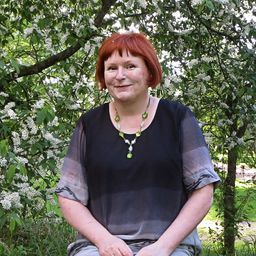“For People Then and for People Now”: Approaches to Heritage and Shared Authority
My Session Status
The presentations trace the political and phenomenological concerns of diverse stakeholders in a wide range of contexts. For example, presenters explore repatriation claims between tribes and government-owned heritage sites in the US Midwest; contested narratives in the planned National Museum of Romanian Communism and the site of Jilava Penitentiary, a former Communist prison, near Bucharest; Native American art objects in a museum collection reinterpreted by Native artists and elders; the entanglements of nationalist politics and grassroots development of projects for cultural preservation in Kyrgyzstan; divergent and convergent meanings of a family-curated museum in Maine, and the findings of an analysis of stakeholder-defined value of cultural heritage at two contested sites in Indiana.
The goal of the session is to highlight innovative strategies for a shared authority approach to cultural heritage. Such an approach acknowledges the agency of diverse stakeholders in navigating structures of power embedded in the mainstream heritage practices and values the counter narratives they produce both with and without the support of dominant institutions.
Sub Sessions
Following repeated cuts to public funding in the United Kingdom, a growing number of local councils are without heritage conservation officers, leaving some councils unprepared to fulfill their statutory requirement to ensure that development is sensitive to the historic environment. In response to reduced availability of professional heritage expertise, and in anticipation of further budgetary cuts, the Council for British Archaeology (CBA) is establishing a series of projects to increase...
This paper will explore whether it is possible for official histories in national museums and nationally important heritage sites to be democratic. It considers contested narratives, using a case study of the planned National Museum of Romanian Communism and the site of Jilava Penitentiary, a former communist prison, near Bucharest. Ceausescu’s fall from power in 1989 left a country impoverished and a divided people. Only now are Romanians beginning to discuss how to remember thi...
The origin of the internationalization of Old Rauma and its later inscription to the World Heritage List in 1991 is in the Nordic Wooden Town project carried out in the early 1970s. That project was a turning point for local conservation and the recognition of unique cultural heritage values: functional diversity and liveliness in a historic setting. In 1976, the municipality, together with some local associations, established the Old Rauma Foundation for securing the financial issues of c...
The Torrington Gopher Hole Museum offers a case study for analyzing how heritage was invented both to engage diverse stakeholders and reshape the image of rural Alberta. In 1995, a group of townspeople—the population of Torrington is currently less than 200—decided to create a small museum in order to put the hamlet “on the map.” After debating various ideas, the group determined to focus its efforts on a local pest/resident well known to the prairies, namely the Richardson’s ground squirr...
Before we can begin to understand what heritage changes, we have to understand the fields of power and significance in which it operates. In the United States, official discourse frames the value of heritage sites associated with the deep Native American past as archaeological sites, an interpretation that is consistent with settler colonial ideologies. This narrative generally obfuscates connections between the heritage of the sites and contemporary peoples and it effaces the history of c...
In Aotearoa, New Zealand, museums and Maori increasingly work together to elaborate practices for managing material culture and Indigenous knowledge held within institutions. These initiatives accelerated after legislation in 1975 and 1985 to progress settlement of tribal claims for redress against the Crown (the Government) following land confiscations and other breaches of the 1840 Treaty of Waitangi. “Te Maori,” a landmark international exhibition in 1984-1985, further recognized the we...
Is it possible to democratize the museum experience and open it to non-expert voices through the use of participatory approaches? This paper will explore the opportunities for “disciplinary borrowings” between the study of democracy and the study of museums, to generate a richer understanding of the politics of participation and the conditions that inhibit power-sharing in cultural institutions. The experimental exhibition “Power of 1: Does your voice count?” mounted at the Museum...
The Homeless Heritage project (2009–2013) was a collaborative public archaeology project that sought to document contemporary homelessness from the perspective of homeless people in two British cities; Bristol and York. This paper will draw on case studies from the Homeless Heritage project and expand upon suggestions made in my recently completed doctoral thesis that participatory cultural heritage work can function as advocacy. Through close examination of the methodologies that were emp...
The Soviet modernist policy of severing ties with the past has left the rapidly globalizing post-Soviet Kyrgyz Republic with some difficulties in the presentation of national heritage identity. Nevertheless, heritage identity is an important political tool and development commodity and government officials have identified nomadic culture as the only authentic Kyrgyz heritage. When I first came to Kyrgyzstan I was told by educated people living in the capital city that, since nomads do not ...






